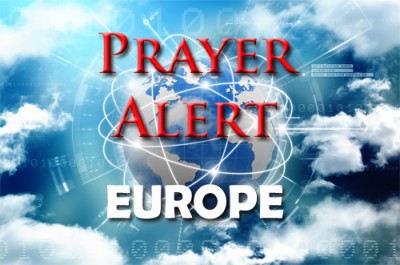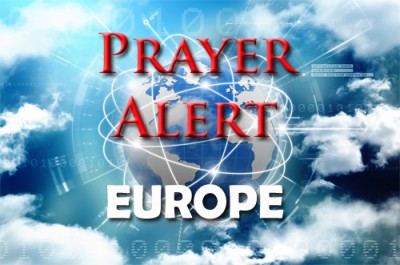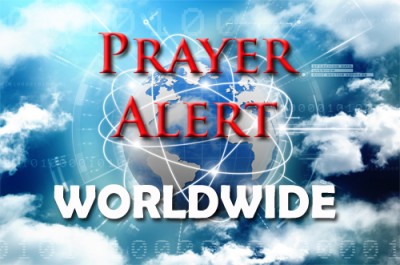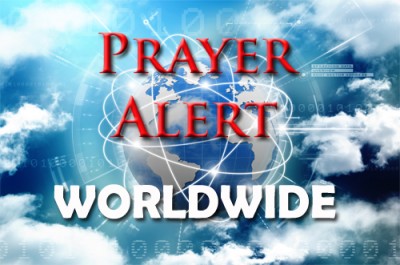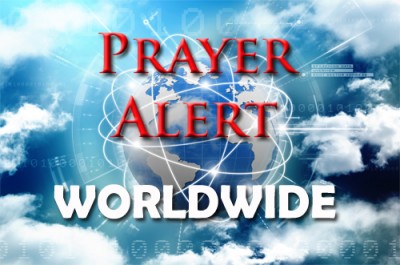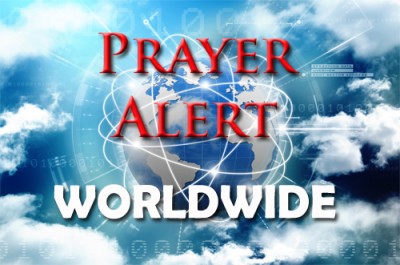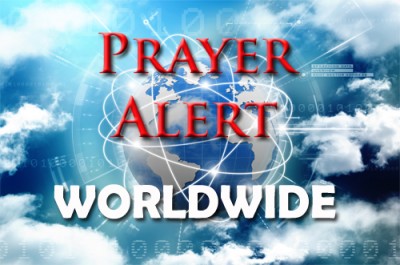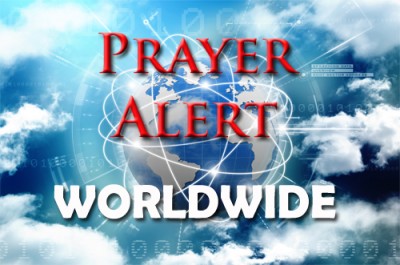France: G7 summit (24-26 August)
22 Aug 2019The 2019 G7 summit in Biarritz will focus on fighting inequality. The following five objectives will be discussed, and we can pray that they will be acted on: a) inequality of opportunity, promoting in particular gender equality, access to education, and high quality health services; b) reducing environmental inequality by protecting our planet through climate finance and a fair ecological transition, preserving biodiversity and the oceans; c) strengthening social dimensions of globalisation through more equitable trade, tax and development policies; d) action for peace against security threats and terrorism; e) tapping into the opportunities created by digital technology and artificial intelligence. Pray for all those participating in the summit: may God rule and reign in every discussion and decision made. See also the article on African wildlife and timber in the world section.
Switzerland: UN summit on extinction threats
22 Aug 2019Amid growing alarm over accelerating extinctions, a major two-week international conference opened in Geneva on 17 August. 183 member states aim to tighten rules on trade in elephant ivory and other endangered animal and plant species. One million species are now at risk of extinction due to human activities. One of the 56 proposals on the agenda aims to prevent traffickers from passing off illegal elephant ivory as coming from mammoths, by listing the long-extinct mammals as a threatened species and thus subject to regulated trade. White rhinos, the American crocodile, and a range of shark and ray species are also on the agenda, as is the giraffe. The future of biodiversity is at stake, and we have a unique opportunity to change its course. WWF reported that Earth’s animal population has plummeted 60% in 44 years.
Global Church: confess and pray
22 Aug 2019A third of the world call themselves ‘Christians’, but many are missing from our churches; others are present, but don’t have the joy of knowing and following Christ. Something has to change! Mission to nominal Christians is missing from the global church agenda. We need to confess and pray: ‘Father, we confess that we have overlooked nominal Christians in society and in our churches. We confess faltering witness, defective discipleship, and lack of concern for those who bear the name of Christ but through ignorance, sin, or rejection are far from the way of Christ and his church. We are quick to judge and slow to listen - especially when they come from a different church tradition. We ask you, Father, to touch the lives of nominal Christians with your powerful Holy Spirit so that they will come to a saving faith in Christ.’
Mexico: pastor killed during church service
22 Aug 2019Pastor Cruz Canseco was in the pulpit of his church when he was shot at point-blank range. His attacker was prevented from escaping, and was subsequently handed over to the authorities. The pastor died on the way to hospital. His murder follows a series of attacks targeting religious leaders, including the kidnapping of Pastor Méndez Ruiz, who had prevented Cuban migrants from being abducted from a shelter on 3 August. The expansion of violent criminal groups and the pervading climate of impunity surrounding such crimes has led to increased violence against religious leaders. Criminals view church leaders as a threat to their power, so they are threatened, kidnapped and killed. Lack of proper investigation means perpetrators are not brought to justice. Pray for the family and congregation of Pastor Cruz Canseco and for the wellbeing and return of Pastor Ruiz .
Pray for justice
22 Aug 2019Violence is an everyday threat to the poor. It is as much a part of daily life as hunger, homelessness or disease. Established laws are rarely enforced in the developing world - so criminals continue to rape, enslave, traffick, and abuse the poor without fear. Children and young women are forced into the sex industry, generating billions for those who exploit them. Millions of children and families are held as slaves in abusive and often violent conditions. Globally, 1 in 5 women is a victim of rape or attempted rape, and the poor are most vulnerable. Vulnerable widows and orphans are chased from their homes, leaving them destitute. Corrupt police officers extort bribes from the poor and throw the innocent in jail. Minority families are denied legal rights, leaving them open to trafficking and abuse. Pray for justice in all these situations.
India: four million stateless people?
22 Aug 2019On 31 August four million Indians could become stateless. In Bangladesh's war of independence from Pakistan fifty years ago, millions of Bengali Muslims fled to Hindu Assam, giving it the second largest Muslim population of any Indian state after Kashmir. Last year, the Assam government published a national registry of citizens, listing everyone who is legally resident. Four million Muslim people who have lived there for decades were not on the list. Unless they can prove a pre-1971 claim to residence, they will be deemed illegal. Bangladesh will not accept the deportation of millions of people who have lived in India since the 70s. Many of these people were born inside India after 1971. Should they be ‘returned’ to a country they have never known? The Assam authorities are building detention camps which could constitute a horrific human rights violation.
Nepal: praying for Hindu people
22 Aug 201984% of Nepal’s people are Hindus, striving to attain freedom for their souls by good works. 90% remain untouched by the Gospel. Hinduism is not just a religion for these millions, it is their culture - their way of life. Christianity is seen as foreign and as a threat to their culture. Those who choose to follow Jesus often pay a high price, yet the Church is growing. Though it is a small portion of the population, there are now believers in nearly all peoples and castes, but the tragic reality remains that over 25 million Nepalese have never yet heard of Jesus, the only one who can bring true freedom. Please pray for him to be made known among unreached peoples in hard-to-access locations; for biblical training and Christlikeness for a rising generation of church leaders; and for the help they need to win the daily poverty battle.
Africa: protecting wildlife and timber
22 Aug 2019Ending the illegal timber trade in Africa should be the first order of business at the G7 summit (see the article in Europe section). There is no wildlife sustainability when timber traffickers and their powerful backers get away with their crimes. Gambia, Madagascar and Senegal all have new governments, who must take steps against impunity for illegal timber trading. Before any new trade proposals can move forward, these countries must start holding perpetrators of past crimes to account. In the Gambia, US$325 million worth of illegal timber went through its ports from 2010 to 2016. Its former president took advantage of poverty and instability at the border to gain control of the illegal rosewood trade from neighbouring Senegal.
